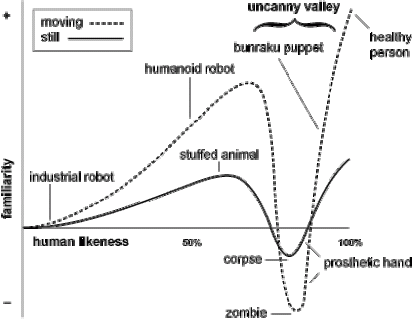Summary:
The “Dark Enlightenment” or Neo-Reactionary movement (“NRx”) has been the object of curiosity and condescension as its most high profile writers and adherents in the tech industry attract more mainstream coverage. The perils of the NRx’s sexist, racist, and hyper-capitalistic techno-utopian thought are evident to most observers. Rather than write off the movement as a nerdy non-entity that is beneath one’s concern, it is important to see how this reactionary strain is uniquely positioned to cause severe damage in the event of a social crisis that leaves people open to anti-liberal beliefs. This is a situation which has been made possible by the persistent libertarian ideology of elitist tech sector employees, whose material advantages leave them uniquely positioned to spread reactionary thought and practice. As remote as the possibility may seem, the potential explosion in popularity of NRx ideas gives a strong incentive to begin laying down frameworks of opposition against them today in the form of labor organization and intersectional thought.
Introduction
The best introductory writing about the Dark Enlightenment thus far has been by Corey Pein, in his article “Mouthbreathing Machiavellis Dream Of A Silicon Reich” in The Baffler magazine. I encourage you to read the whole thing to get a solid understanding of the principles, motivations, and influences behind the nascent NRx, but want to draw attention to the following points:
– “Neoreactionaries are explicitly courting wealthy elites in the tech sector as the most receptive and influential audience.”
– Significant and wealthy members of the tech industry, such as Peter Thiel, have already voiced sentiments that are shibboleths in the NRx world, including “I no longer believe that freedom and democracy are compatible.”
It seems as though today’s left is destined to spend some time battling a cohort which was already thoroughly satirized by the tragic visionary John Kennedy Toole, whose treatment of the medievalist man-child Ignatius J. Reilly in his novel “A Confederacy of Dunces” is all the funnier for having been written in the 1960s. Many careful writers will do a good job dismantling the ahistorical, resentful, and just poorly written ideals of the NRx’s thought leaders. But, because of the irregular and decentralized nature of any reactionary tendency, demolishing the proposals of one Mencius Moldbug will have all the finality of cutting the head off the Hydra. Replacements will always be in steady supply for as long as the social environment which fosters reactionary thought exists. This essay will focus primarily on the people that these ideas are most likely to take hold of in the foreseeable future and the reason why these ideas can lead to dangerous reactionary politics in the event of a major crisis.
Meet The Techlord
Peter Thiel is not an exceptional case. Though Silicon Valley’s rank and file is now generally liberal, the ideas that he supports are being smuggled into the mainstream in innocuously “Disruptive” packaging. Meanwhile, the tech industry has been successfully accumulating wealth on a corporate and individual level. The increase of wealth and privileges for tech sector employees seem most likely to lead to greater tensions and feelings of persecution or victimization at hands of neo-Luddites who couldn’t possibly have a good reason to criticize them. A subculture within the industry that brought you Angry Birds is forming: the techlord. Techlords are the special subset of the nouveau riche who see themselves above the petty restrictions that apply to lesser people. They might feel that they possess an identity which is singled out for hate crimes by virtue of existing, or that government regulation is stifling innovation by their superior minds. These are the start-up monarchs/dictators-for-life who become disillusioned with democracy and, like Thiel, find it incompatible with their work. When discussing capitalistic liberalism’s inherent dilemma of balancing freedom and equality, they will solve it by doing away with equality altogether. The most accessible individualistic ideology for techlords, then, is libertarianism. Their brand of “cyberlibertarianism” is a pervasive ideology which is flexible enough to influence even the Democratic voters of Silicon Valley. Rather than serving as an ideological end, this libertarianism opens the door to more extreme far-right thought, with which it frequently aligns strategically and fundamentally.
Fascism and Libertarianism
The conventional wisdom about fascism is that it stands as a polar opposite to socialism or, fascinatingly, in both polar and perpendicular opposition to libertarianism. If socialism means the death of the free market, then what is fascism? The idea that “Hitler was a libertarian” seems so absurd to true believers that dropping it into the ether almost always warrants a furious know-it-all’s reply. Meanwhile, the historical record shows that Nazi Germany was so pro-business that the first apparent English-language use of the word “privatization” was to describe their economic policies. Hitler himself wrote that it would be “illogical” to transfer the product of a person’s achievement into the hands of “…someone of lesser achievement, or to the hands of the collective…“. One may find “collectivism” invoked as the enemy today by billionaire Charles Koch.
The attraction between fascists and libertarians has never been a one way road. Ludwig von Mises, one of the major influences on American libertarianism, praised European fascists in 1927, saying that “[t]he merit that Fascism has thereby won for itself will live on eternally in history.” Mises’ contemporary F.A. Hayek, who is simultaneously regarded as an influence for conservative, neoliberal, and libertarian thought, endorsed the “temporary” dictatorship of Pinochet in Chile, a regime which killed and disappeared thousands and tortured tens of thousands to advance the agenda of the invisible hand.
Fascism, as has long been known, surges when a nation suffers a major crisis as German economic instability of the 1920’s, the CIA-engineered coup against a democratic government, or long-lasting recession or depression. It doesn’t need to win over the hearts and minds of 51% of the population, but just enough to seize the effective monopoly of violence within a nation. Liberal governments may tolerate or even nurture fascist elements to serve their ends in the midst of perceived moments of crisis: in post-World War I Germany, proto-Brownshirts were used to put down worker’s uprisings. In post-9/11 America, neo-Nazis bolstered the ranks of an army that needed all the volunteers it could find. Such elements have proven difficult to control and prosper amid crisis. Fascism offers a simple answer – we would be great again if we destroyed some intruding force that is plaguing the national body – and seeks to go about accomplishing this goal with the utmost of efficiency. Fascism in the 20th century had the assembly line as its model for rapid and efficient horror. Fascism in the 21st, should it appear in full force, will have lightning-speed decision making computers.
The Potential Trajectory
“I think a truly enlightened stance would be: violence may be justified against parasites who lack virtue.” – Justine Tunney, Software Engineer at Google
“[The Protocols of the Elders of Zion] shows Jews how to infiltrate the bloodstream and organs of Gentile peoples. It reveals how Gentile states are to be undermined to make them completely subject to the Jewish parasite.” – G.G. Otto, “The Jew As World Parasite,” 1943 pamphlet
The good news: nothing in the United States today resembles a full-blown fascist party. The bad news: neither did anything in Germany in 1914. The Republican Party has been the liberal order’s home for reactionary tendencies and natural system for policing the margins of far-right thought and prevented anything too extreme from gaining mainstream acceptance. The steady increase of inequality has sparked new interests in alternatives to liberal capitalism, sometimes with confusing or contradictory manifestations. To provide a plausible example: Peter Thiel has co-funded publications in the past, and if he felt like it, could easily use a sliver of his net worth to establish a devoted publication that would disseminate hyper-libertarian thought and propaganda with the intention of swelling the ranks of techlords and intensifying their fear and distrust of the ignorant, illiterate masses. Writers of or influenced by the NRx may find a steady gig in such a position. Keeping in mind the significant economic clout of even non-executive tech employees, even a small group of techlords with perhaps one or two interested executives would be able to fund numerous projects to further their particular strain of ideology. The libertarian climate denial machine provides an example of a successful agnotology project with only a small handful of funders. A “human egalitarianism denial machine,” or something like it, is not beyond imagining.
The current NRx blogroll is largely incoherent and too mired in references to 15-year old sci-fi movies and sprawling webcomics to hold the attention of anyone who isn’t predisposed to loving or hating the ideas. It’s the generation which follows this one that is cause for concern. This will be the generation that knows how to package its ideas in a more “politically correct” format, as Pein mentioned libertarian royalty Patri Friedman is already attempting. The prototype techlords are already voicing support for foreign fascist political movements – NRx 2.0 will find ways to make these ideas more palatable to the swaths of people who may find themselves in a crisis with substantial resources and a desire to bring things “back to normal.”
Burying the Hydra: an incomplete proposal
First, a note: despite the “neo-” suffix, reactionary thought is enabled by a range of persistent forces that will always exist as long as our economic system is built on the private ownership of the means of production. This system ensures there will never come a day where everyone agrees to just be decent, tolerant liberals because it is built to entrench and reproduce division. Resentment on the basis of race, sex, gender, ability, or “culture” is fostered to divide the masses who have to sell their labor to survive. Division keeps things cheap for the tiny minority which purchases all of that labor (David Graeber helpfully formulates: “if 1% of the population controls most of the disposable wealth, what we call “the market” reflects what they think is useful or important, not anybody else”). To recycle an earlier metaphor, the NRx is just one head of the Hydra of reaction which can only by buried in the past by revolution. Cutting it off leaves neo-Nazis, neo-Confederates, and whatever else may follow. As long as we’re stuck with capitalism, we need to find solutions to slow the growth or reduce the popularity of particular reactionary belief systems. As far as the NRx strain is concerned, I humbly offer the following three courses of action, and would be delighted to hear critique or further suggestions from those who have given it thought:
- Encourage unionization in the tech industry
A more organized work force would promote a greater consciousness of the role of class in society. It is much easier to see one’s common situation with others when living in a “union vs. management” rather than the atomized “employee vs. boss” framework. Members of the tech industry may believe a unionization drive would be against their interests at the moment, but doing it before the balance of power has shifted entirely in favor of start-up monarchs is the safest strategy for ensuring their long-term livelihoods and combating the tendency towards ruthless and destructive individualism.
Not exactly something we have complete control over, but it’s a useful medium-term goal of the left to prevent the total failure of the state. Accelerationists may tell you that collapse will pave the way for revolution, but economic disasters that leave many unemployed and desperate have a way of enabling all the wrong people. Of course, more widespread unionization of the U.S. workforce would likely lead to lessened inequality, which might well reduce the chance of a crisis occurring, but almost certainly means improved social conditions regardless.
- Promote intersectional thought
The NRx movement is home to a veritable constellation of ideologies. Countering these disparate strains of political reaction will be made easier if there is a wider understanding of the interconnection of oppression in its many forms. White supremacy, patriarchy, imperialism, and the exploitation of workers are all powerful forces that overlap to pit normal people against one another. The left going forward requires an acceptance of the complexity of these intersecting oppressions, as well as the common benefit we all stand to win from opposing all of them at all times. An intersectional left which acknowledges the damage done by these divisions and the fundamental interconnectedness of us all is the only decent response to a belief system which seeks to preserve the oppressive relationship between the exploiter and exploited in more futuristic attire: techlord and techpeasant.







